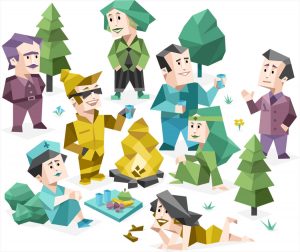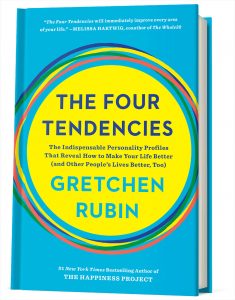This week our topic for exploration is self-knowledge. I’m one of those people who can’t resist an online tool that claims to help you gain self-understanding—be that my about my “love language,” my personality type, my astrological sign or some aspect of my character based on some fictional person in a popular series. I’m a sucker for these things, and as I’m sure you know, some are not worth your time.
This week we’ll offer you our favorite free and low cost online quizzes that can help you gain deeper self-knowledge. The key question, however, is what do we do with this information about ourselves? How do we use it in our work as educators? How do we use it to make decisions about our time and energy? How do we use this self-knowledge to cultivate well-being and resilience?
 Personality Types: Let’s start with exploring personality type. The Myers Briggs Type Index (MBTI) has been around for a long time and is an industry standard for understanding personality—that part of you that’s fairly fixed. I’ve tried a number of online tests for the MBTI, and this is the one I like the most. It’s free, it doesn’t take too long, and the questions are solid. If you are intrigued by MBTI, you may want to take another one or two and compare the results—they can vary a little bit, but for me at least, I’ve found that 16 personalities resonates most an has been most useful.
Personality Types: Let’s start with exploring personality type. The Myers Briggs Type Index (MBTI) has been around for a long time and is an industry standard for understanding personality—that part of you that’s fairly fixed. I’ve tried a number of online tests for the MBTI, and this is the one I like the most. It’s free, it doesn’t take too long, and the questions are solid. If you are intrigued by MBTI, you may want to take another one or two and compare the results—they can vary a little bit, but for me at least, I’ve found that 16 personalities resonates most an has been most useful.
Strengths: For an online test that help you see your specific strengths as they might relate to work, the CliftonStrengths, StrengthFinder is the best. Unfortunately, it’s not free (costs $19.99) or the code is provided if you buy the book. I’ve found this test to provide essential knowledge that I use regularly in making decisions about what I do and how I do it, and also that helps me understand others. You can spend a long time reading about the implications for your strengths, how to organize a work life around them, and how to play to them.
Signature Strengths: This online quiz gives you a different way to think about your character and strengths. The language for strengths is different than what StrengthsFinder uses. For example, your top strengths could be perspective, love, gratitude and zest. I like this language. I like thinking about my strengths through these words. This one is free!
Love Languages: Your “love language” is how you connect with others—significant others and probably also friends, colleagues, and anyone else with whom you’re in any kind of relationship. Do you most want words of affirmation? Thoughtful gifts? Quality time? Hugs? Or acts of service? There’s useful insight here into how you give and receive love. And it’s free.
 The Four Tendencies: This is a framework created by Gretchen Rubin that seeks to explain how we meet expectations—our own and those of others. Rubin suggests that you can be an upholder, a rebel, an obliger or a questioner. Her free quiz helps you gain insight into how to be more successful at meeting your goals, whether internally or externally imposed.
The Four Tendencies: This is a framework created by Gretchen Rubin that seeks to explain how we meet expectations—our own and those of others. Rubin suggests that you can be an upholder, a rebel, an obliger or a questioner. Her free quiz helps you gain insight into how to be more successful at meeting your goals, whether internally or externally imposed.
If you’ve used other online quizzes that have helped you understand yourself, please share them in the comments! We’re always looking for new insights into who we are and how we can make the most of who we are.

